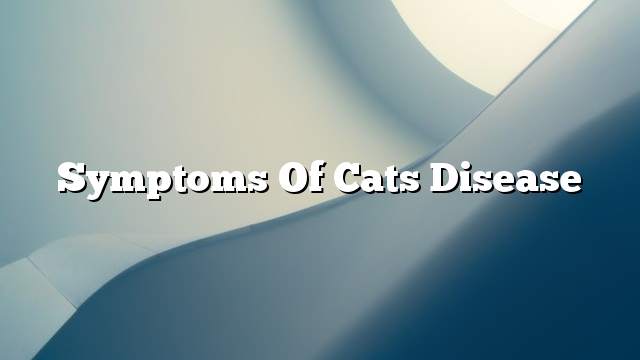Toxoplasmosis
Cats disease is known scientifically as Toxoplasmosis, a disease caused by the transmission of the parasite toxoplasma from the feces of cats to humans, as this parasite infected cats first, and live in the body and feces of cats, and then infect humans with direct infection, as it can not be infected with this disease Before the infection of cats, so the most vulnerable to the disease are those who raise cats in their homes, and this disease is a greater risk if a pregnant woman, and is a disease of difficult and painful, and the symptoms of the first symptoms of influenza, but then develops and affects the Fetus if a Pregnant women.
Cats
As this parasite needs a direct method of infection such as eating food contaminated with this parasite, contact with places where the feces of cats or eating the meat is not cooked well and contaminated with this parasite, which means that this parasite is not transmitted through air or air, Of cats to humans after about 25 days of the cat’s disease or parasite.
Symptoms of Cats Disease
Symptoms appear on cats
Some cats become infected with parasites and have no symptoms, and may appear symptoms of mild and unnoticed or distinguish, and the most important of these symptoms:
- Inactivity of the cat, which leads to the lack of movement.
- High degree of cat fever.
- He has vomit, loses appetite for food, and may be accompanied by diarrhea.
- Some infections may occur in the cat’s eye area, as well as some respiratory problems.
Symptoms appear on the injured
- Pregnant women and cats are exposed to miscarriage, but this occurs only once in the life of a woman infected with cats.
- The disease is accompanied by some muscle pain, fatigue, and high body temperature, accompanied by sore throat.
- Inflammation of the glands in the body, especially the lymph nodes in the neck area.
Symptoms appear on the fetus
Pregnant women and cats are affected by the disease of the fetus, where it shows some symptoms that indicate the incidence of some diseases after birth:
- Infection of the fetus with problems in the nose, and lack of vision.
- Infection of the fetus with brain problems causing mental retardation or calcification of the brain.
- Infection of the fetus with deformities and congenital anomalies, such as discharge or small head size compared to normal condition.
- Inflammation of the glands in the child, especially the liver and spleen.
